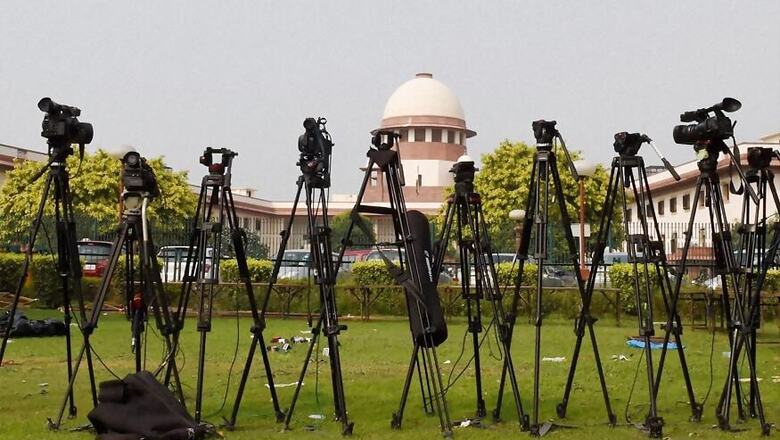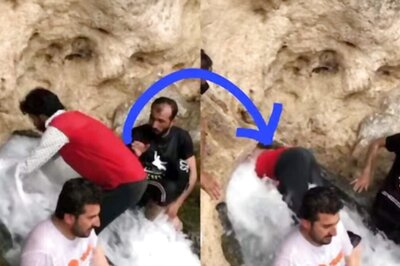
views
New Delhi: It took around 12 years for the presidential reference on the SYL canal case to be decided by the Supreme Court, but uncertainty over implementation of the verdict continues as experts are divided over the feasibility of its execution.
While those supporting the verdict are of the opinion that there is no other option but to construct the remaining part of the canal on the Punjab side, others are of the view that change in circumstances in the last 5-6 decades have posed hurdles in the enforcement of the verdict.
"The verdict of the Supreme Court is the opinion on question of law. The advisory opinion is also a declaration of law. In the SYL case, the declaration of the law is that the Punjab Termination of Agreement Act, 2004 was not valid.
"There is no option for the President to accept or not to accept. His job is over," senior advocate Govind Goel said.
Holding a contrary view, senior advocate R S Suri, who represented Punjab, said the state cannot be left "remedy- less" in the water pact as there is a deficiency in quantity which used to be there when the SYL canal pact was signed.
"The most important thing for Punjab is the constitution of the tribunal to settle the dispute. Punjab cannot be left remedy-less as all the agreement on water sharing are of 1940s and 1960s and already there is 20 per cent less water available.
"The question that is required to be addressed is water has to be re-allocated. Since all the treaties and agreement were of 40s and 60s, there is a need for new series of treaties," he said.
Echoing a similar view, senior advocate and Rajya Sabha MP K T S Tulsi said, "The problem is that if you force the agreement, virtually whole of Punjab will turn into a desert.
Almost 113 out of total 140 tehsils are already water- stressed. Most of them are dependent on ground water."
He also said the verdict of the five-judge bench on the issue was not binding on the Centre as it was delivered under advisory jurisdiction.
Another lawyer, who appeared for one of the states and did not wish to be named, endorsed Goel's view and said, "Haryana has to enforce the decree. The Centre, which has the executive power, can intervene and complete pending works."
The apex court, on November 10, thwarted Punjab's attempt to wriggle out of the water pact saying it cannot "unilaterally" terminate it or legislate to "nullify" the verdict of the highest court.
Goel termed as "political", the stand of the Parkash Singh Badal government that the SC verdict was merely an opinion.
"There is no legal basis in the arguments of the Badals that the judgement on presidential reference is only an opinion. Their stand is political in nature," he said.
"Haryana government can legitimately start and enforce the implementation of law for construction of canal in Punjab part," he said, adding "Haryana can also request the Centre to intervene if their is any resistance by Punjab which will be violative of the law."
If Punjab does not act as per the judgement, there is also an option for the Centre to impose Article 356, he said.
Puri, however, alleged there was no "proper adjudication" in the matter and suggested that the setting up of a water tribunal could be the only solution for the dispute.
"The dispute is not an issue of ego. Tribunal is the only solution for the dispute, instead of any other remedy. The status of tribunal is as high as the Supreme Court. The water dispute cannot be decided by the court but by the tribunal," he said.
"Advice of Supreme Court is not binding. President will be advised by the central government. Before this judgement, there were two decrees against Punjab which had maintained that the Centre has to intervene in canal construction," he added.
Tulsi said "75 per cent of water which come from these rivers go to various states and Pakistan and only 25 per cent water is left in Punjab. Now, the volume has reduced in relation to what happened to be there 30-60 years ago."
He also favoured the setting up of a tribunal to resolve the old dispute by taking into account the present situation.
The apex court has responded in "negative" to all the four questions referred to it for the opinion by then President APJ Abdul Kalam on the constitutional validity of the law passed by then Punjab government-led by Amarinder Singh to nullify the court verdicts and unilaterally terminating the almost three-decade old SYL water sharing agreement.




















Comments
0 comment